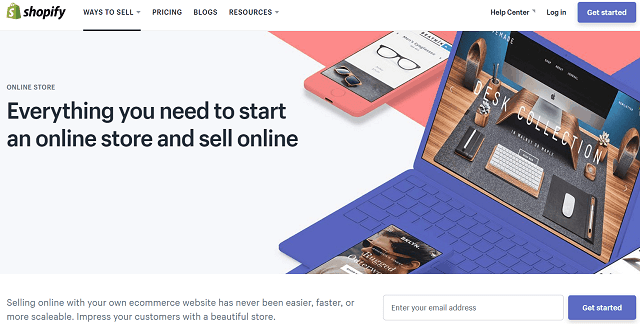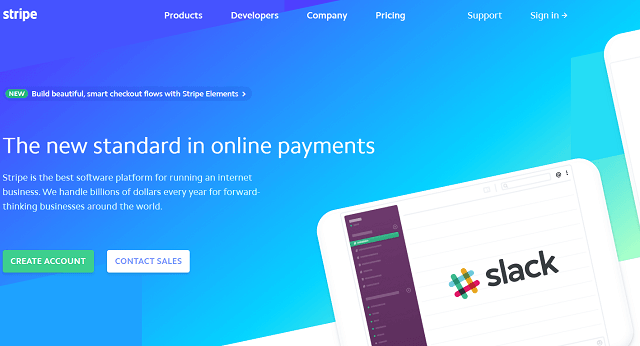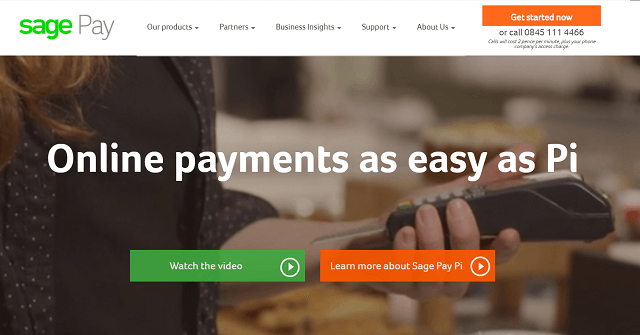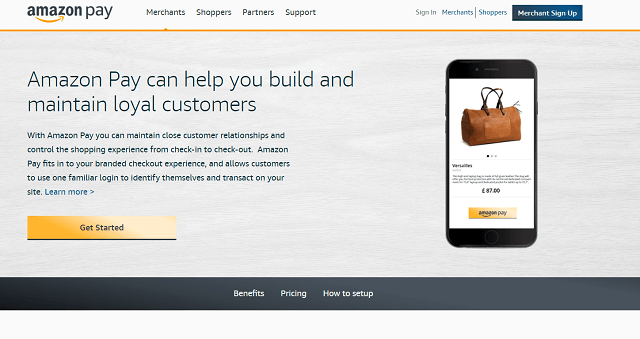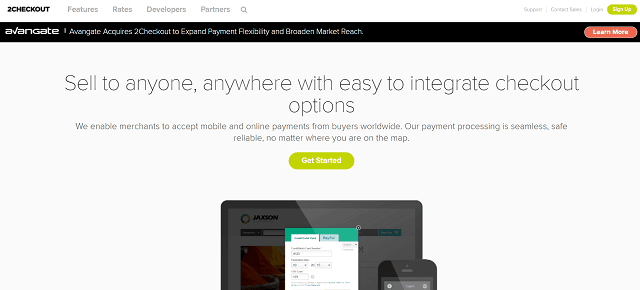Looking for an online payment system in the UK? Well there have never been more choices available than there are right now.
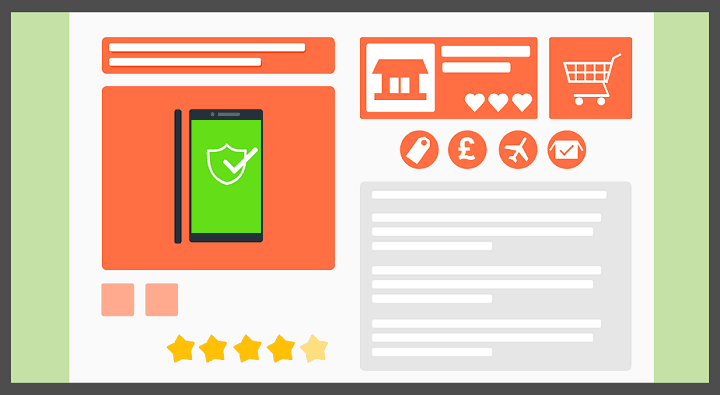
Below we look at 11 of the most popular and easy to use options available for UK businesses. However, if you’re looking for the cheapest option you may want to get quotes from us here.
1. WorldPay Online
Worldpay is by far the largest payment processing company in the UK, handling over 40% of all card transactions. If you want to accept cards, they likely have a solution for you.
In terms of accepting card payments online they offer:
- Online Payment Gateway: Payments in over 116 currencies and allows you to accept all major credit and debit cards as well as PayPal.
- Online Merchant Account: All your customer payments go straight into this account, which they will then settle into your bank account.
- Pay By Link: Secure online payments without needing a website
Worldpay Online Fees
-
- Pay As You Go: Online set-up fee £25, 10p per transaction gateway fee, transaction authorisation fees apply.
- Fixed Monthly: Monthly package fee from £49.99 includes transactions up to set threshold and authorisation fees.
- Standard: Monthly online payments gateway fee of £19.95, 10p per transaction gateway fee, PCI annual managment fee £29.99
and separate Debit & Credit transaction rates. Note: Transaction authorisation fees apply.
- Pay By Link: £9.95 per month
Transaction % rates based on monthly card turnover.
WorldPay Benefits
- Flexible pricing plans
- Accept all major credit and debit cards as well as PayPal in up to 116 currencies
- Secure payments with fraud screening to help protect you and your customers
- Set up recurring payments and subscription-based payment plans for your customers
- Gets a 4.6 out of 5 rating on Feefo
WorldPay Downsides
- Do not display their transaction fees publicly as these depend on volume and business type. However, you can easily request a quote.
- Not a complete ecommerce solution.
- Has mixed reviews on Trustpilot (here and here).
Learn more: WorldPay Website
2. Shopify
Shopify is currently the most popular ecommerce platform in the UK. Unlike Paypal, they offer absolutely everything you need to get started running an online business from web hosting to payment processing to seamless integration with other sales channels such as Amazon and their own POS.
They’re also really easy to get started with an even offer a free 14 days-trial with no credit card required. Arguably this makes them the easiest solution on the list, but simialr to Paypal they are not the cheapest.
Shopify Fees For Selling Online:
- Shopify Payments Transaction Fees: Between 2.2% + 20p (Basic) to 1.6% + 20p (Advanced)
- Monthly Fees: $29 (Basic) to $299 (Advanced) – note this includes Website, blog and free SSL certificate.
- External Payment Gateway Fee (if not using Shopify Payments): 2.0% (Basic) to 0.5% (Advanced)
Shopify Benefits
- Includes everything you need to an online business up and running
- Can get started free for 14 days with no credit card required
- Shopify Payments fees are very competitively priced for online payments
- Offers a range of 100+ professional themes
- Abandoned checkout recovery
Shopify Downsides
- Monthly fees after 14 days if you want to keep using their service.
- Additional Transaction fees for using alternative payment gateway.
- Does have some poor reviews on Trustpilot (here and here)
Get Started: Click To Visit Shopify Website & Start 14-Day Free Trial (No CC required)
3. Paypal Online Payments
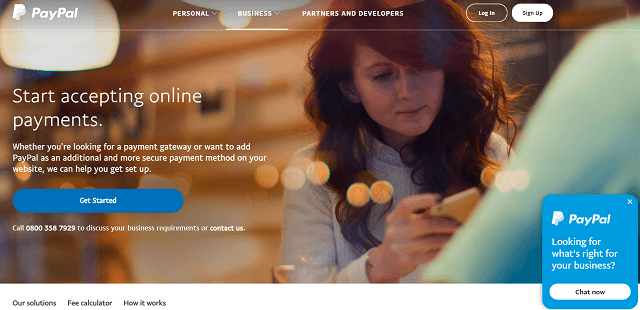
Paypal is likely one of the first names you think of, when you think online payments. And for good reason, they claim that over 20 million UK shoppers use PayPal each year in the UK and that 7 million businesses worldwide use their platform to accept payments.
They are also one of the easiest to get started with, especially if you already have a Paypal account. However, be aware that their fees may not be the cheapest out there.
Paypal Fees For Selling Online:
- Transaction Fees from: 1.9% + 20p per transaction (sales volume of up to £55,000 per month) up to 3.4% + 20p per transaction (sales volume under £1,500 per month). Note they also offer bespoke pricing options for even larger businesses.
- Monthly Fees: Free (Web Payments Standard or Express Checkout) or £20 per month (Web Payments Pro)
Paypal Benefits
- Customers can pay you with their PayPal account directly
- Mobile optimised checkout
- Built-in fraud protection
- Accept international payments
- Web Payments Standard can be implemented with no advanced technical skills
Paypal Downsides
- Fees can be very high for merchants with low sales volumes.
- Web Payments Standard may look a little amateurish and not the most professional (note they do offer other options for a more professional looking solution)
- Does not get the best reviews on Trustpilot (see here and here)
4. Stripe
Stripe has rapidly become one of the most popular online payment systems due to their ease of integration and transparent pricing. In addition to card payments, you can set-up recurring billing and direct debit services.
However, like most of the solutions presented here, you will still need to provide your own website and shopping cart software to start selling online.
Stripe Fees
- No setup, monthly, or hidden fees
- 1.4% + 20p for European cards
- 2.9% + 20p for non-European cards
- SEPA Direct Debit: 1% + 20p (£5 cap)
Stripe Benefits
- Simple, transparent pricing
- No setup, monthly, or hidden fees
- Real-time fee reporting
- Competitive rates on European credit cards
Stripe Downsides
- Requires a certain degree of technical knowledge to get it working, although they do offer extensive, easy-to-follow documentation.
- Has only average reviews on Trustpilot
- Fees for debit and non-European cards are higher than some of the alternatives.
- Once you’re set up, transfers arrive in your bank account on a 7-day rolling basis, which is much slower than many competing services
5. SagePay
SagePay offers a full range of payment processing solutions for both online and offline businesses. They claim 55,000 businesses use their services and are unique offering flat monthly fees for many of their products with no transaction charges.
They are also among the best rated payment processing companies in the UK, so are definitely worth a look as online payment system.
SagePay Fees
- Flex: £19.90/month, 350 transactions per month, eInvoice and phone payments included.
- Plus: £45/month, 500 token purchases per month, Accept a range of local European Payment types.
SagePay Benefits
- Offer an easy drop-in checkout integration
- Plans are charged at Flat monthly fee with no transaction charges.
- Have an amazing 9.7 out of 10 rating on Trustpilot.
SagePay Downsides
- Need to get a bespoke quote if you generate more than 3,000 transactions a month.
- Change 2 pence per minute for all calls, including support.
- Requires a bit of technical knowledge to get up and running.
6. Klarna
Klarna is one of a growing number of Swedish fintech companies (see Zettle) that are changing how businesses accept payments. For example, they are the preferred payment method for all shops built using the EKM platform.
For UK businesses they offer the following ways to get paid:
- Pay now: Card payments and other APMs for customers who want to pay for a purchase immediately.
- Pay later: Deferred payments for customers who like frictionless purchases and to pay after delivery by invoice.
- Slice it: Flexible consumer finance that lets customers pay over time.
Klarna Fees (from on EKM Website)
- ‘Startup’ transaction fee: 2.49%
- ‘Growing’ transaction fee: 2.19%
- ‘Established’ transaction fee: 1.99%
- No set-up or monthly fees
Klarna Benefits
- One of the few companies offering a buy now, pay later service.
- Payments widget enables you to show a user’s preferred and most relevant payment options.
- Keep your customers on your site.
Klarna Downsides
- Do not have clear pricing information on their website.
- Some online reviews highlight confusion around pay later service.
- Some reviews claim that their e-mails go to the spam folder.
7. Payoneer

Payoneer claims to have 4 million users, across 200+ countries, handling payments in 150+ currencies. In simple terms, Payoneer is something of a Paypal alternative which allows you to receive payments from companies worldwide.
They offer the following services:
- Local Currency Accounts: Enable you to receive local bank transfers from companies and marketplaces in the US, UK, EU, Japan, China, Canada and Australia.
- Billing Service: Send your client a payment request and they can pay directly online via bank account, direct debit or card.
- Marketplace Payments: Allows you to get paid faster.
Payoneer Fees
- Sign-up: Free
- Receiving payments from another Payoneer customer or via receiving account: Free (GBP, USD, EUR, & JPY)
- Billing Service: 3% (credit cards all currencies) or 1% via eCheck (USD)
- Withdraw money to a bank account in a different currency: Up to 2%
- Fee to withdraw to a UK sterling bank account: £1.50
Payoneer Benefits
- Currently offering you an extra $25 after you collect your first $100. (learn more here)
- Fast: Receive payments from companies and clients within hours, not days.
- Claim they can save you up to 90% on your payment fees.
Payoneer Downsides
- Not really designed for running an online store, better suited to freelancers and affiliates.
- Credit card fees are quite high, but they do allow you to accept almost any currency worldwide.
- Some online reviews point to poor customer service.
Learn more: Payoneer Website (and earn $25, when you collect your first $100).
8. Amazon Pay
Amazon Pay merchant services allows you to offer your customers the ability to pay via their existing Amazon account. This can be used either as a stand-alone payment solution and/or in addition to your existing online payment system.
Given Amazon’s reach in the UK, it’s an interesting and unique option for accepting online payments.
Amazon Pay Fees:
- Processing Fee + Authorisation Fee: 3.4% + 20p (under £1,500 a month) down to 1.4% + 20p (over £55,000 a month)
- Cross Border Fee (outside UK): 0.4% – 1.5%
- Chargeback Dispute Fee: £14 (excluding VAT)
Amazon Pay Benefits
- Provides a familiar, trusted way to check-in and checkout, using your customer’s existing Amazon login.
- Transactions are completed on your site and you can receive customer name and verified email at check-in.
- Easy for you to add payment option to your checkout if you use their partner eCommerce platforms such as Shopify, BigCommerce or Xcart.
Amazon Pay Downsides
- Fees for low volumes merchants are incredibly high.
- Some online reviews claim it can take awhile to get approved.
- Typically takes 3 to 5 business days to get paid, which on the slow side.
9. Adyen
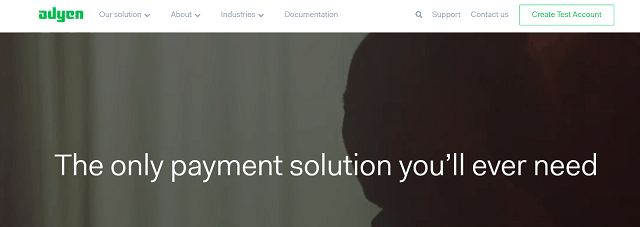
Adyen is the surinamese for “Start over again”, which is what the company aims to do with online payments. Their goal is to crate a frictionless, state-of-the-art infrastructure that connects directly to card schemes and payment methods around the world.
For online payments thy currently offer their Checkout solution which works with your website, mobile site and/or app.
Adyen Fees
- No setup fee, or surprises
- Visa + Mastercard: 0.90% – 1.10% + €0.10
- Amex: 3.95% + €0.10
- SEPA Direct Debit: €0.25 + €0.10
Adyen Benefits
- Offer Multiple bank accounts and multiple currencies.
- Allows you to accept every payment on one platform.
- Fees are extremely competitive, although there is a minimum invoice of €100 ($120).
Adyen Downsides
- Designed for bigger merchants since there is a minimum invoice amount of €100 ($120).
- Pricing for European fees is given in Euros, although you can accept GBP
- Typically settles funds to your bank account twice a week, which is slower than some other services.
10. 2Checkout
2Checkout are global leader in online payments. They claim to be trusted by over 50,000 merchants and support transactions in 196 countries through 8 payment methods, 26 currencies, and 15 languages.
In terms of online payments in the UK they offer:
- Global Payments: Accept payments throughout the world.
- Hosted Checkout: Either standard or inline
- Payment API: Payment processing power directly into your website.
- Online shopping carts: Works with almost all leading options
- Recurring billing: For membership or subscriptions
2Checkout Fees
- Standard UK Fee: 2.4% + 30¢
- Cross border Fee: 1.5%
- Chargebacks: $25
- Currency conversion: 2-3%
2Checkout Benefits
- Offers a complete range of online payment systems.
- Works with almost every possible shopping cart solution.
- Very easy to get started.
2Checkout Disadvantages
- Fees are not the lowest out there.
- Many complaints about sudden account closures.
- Also complaints of poor customer service.
Learn More: 2Checkout Website or read 2Checkout reviews.
11. Authorize.net
Authorize.net is one of the oldest online payment processing companies out there. They boast that they have over 400,000 merchant customers around the world.
They currently offer two solutions for UK businesses. Either Payment Gateway & Merchant Account or just a Payment Gateway.
Authorize.net Fees
- Payment Gateway & Merchant Account: Transaction Fees: 2.49% + £0.15 and Monthly Gateway fee of £19 with free set-up.
- Payment Gateway Only: Gateway transaction fee of £0.10 + Monthly Gateway fee of £19 with free set-up.
Authorize.net Benefits
- Offer Automated Recurring Billing for free.
- Free Advanced Fraud Detection Suite
- Includes a Virtual Terminal.
Authorize.net Downsides
- Charge a monthly fee when most competitors do not.
- Charge extra (£15/month) for extra currencies beyond GBP.
- Transaction fees are on the higher-end of the spectrum.
Learn more: Visit the Authorize.net website or read Authorize.net reviews
Common Questions
What should I know before I sign-up to an online payment system?
Before committing to an online payment service, it’s important to evaluate several key factors to ensure the chosen system aligns with your business needs, security requirements, and budget.
Here are some key considerations:
- Fees and Costs: Understand all the fees associated with the online payment system. This includes transaction fees, monthly or annual service fees, setup fees, and any additional charges for things like chargebacks or international transactions. Compare these costs across different providers to find the most cost-effective option for your transaction volume and type.
- Payment Methods Supported: Ensure the system supports a wide range of payment methods, including credit and debit cards, bank transfers, and popular digital wallets (e.g., PayPal, Apple Pay, Google Pay). Offering multiple payment options can improve customer satisfaction and potentially increase sales.
- Integration and Compatibility: Check how easily the payment system integrates with your current website, e-commerce platform, or accounting software. Seamless integration is crucial for efficient operations and a smooth user experience. Some systems offer plugins or APIs for easy integration.
- Security and Compliance: Security is paramount in online transactions. Look for a payment system that complies with industry standards, such as PCI DSS (Payment Card Industry Data Security Standard), and offers robust security features like encryption, tokenization, and fraud detection tools to protect sensitive payment information.
- Customer Experience: The payment process should be straightforward and user-friendly. A complex or lengthy checkout can lead to cart abandonment. Consider a system that offers a simple, fast, and mobile-optimized payment process.
- Settlement Times: Understand how long it takes for funds to be transferred from the payment system to your bank account. Settlement times can vary, and longer times might affect your cash flow.
- Customer Support: Reliable customer support is crucial, especially when dealing with payment issues. Look for providers that offer comprehensive support via multiple channels (e.g., phone, email, live chat) and have a good reputation for service quality.
- Scalability: Consider whether the payment system can scale with your business. As your transaction volume grows or your market expands, you’ll need a system that can accommodate increased demand and potentially more complex payment needs.
- Contractual Obligations: Carefully review any contracts or service agreements for terms related to contract length, early termination fees, and any other obligations or restrictions.
- Reputation and Reviews: Research the provider’s reputation, customer feedback, and reviews. Learning from other businesses’ experiences can provide valuable insights into the reliability and performance of the payment system.
- Trial Periods and Demos: If available, take advantage of trial periods or request demos to test the system’s functionality, ease of use, and integration capabilities before making a decision.
By thoroughly evaluating these aspects, you can choose an online payment system that meets your business needs, offers a secure and efficient payment process, and provides value for your investment.
Which are better hosted or self-hosted online payment systems?
Both options have their advantages and disadvantages, and understanding these can help you make a more informed decision.
Hosted Payment Systems
Advantages:
- Ease of Setup and Use: Hosted solutions are typically easy to implement, requiring little to no technical expertise. Providers manage the payment gateway, security, and compliance, making it a hassle-free option for businesses without a dedicated IT team.
- Security and Compliance: With hosted systems, the responsibility for security and PCI compliance largely falls on the provider. This can significantly reduce your liability and the complexity of maintaining secure transactions.
- Customer Support: Providers usually offer customer support, handling any issues related to payment processing on your behalf.
Disadvantages:
- Less Control: Businesses have limited control over the payment process and user experience since transactions are processed on the provider’s platform.
- Customization Limits: There might be limitations to how much you can customize the checkout experience to match your branding or specific needs.
- Dependence on Provider: You rely on the provider’s stability, security, and performance. Any downtime or issues on their end can directly impact your transactions.
Self-Hosted Payment Systems
Advantages:
- Full Control: Businesses have complete control over the payment process and user experience, allowing for extensive customization to match branding and specific requirements.
- Customization and Integration: Self-hosted systems can be fully customized and integrated with other business systems for a seamless workflow.
- Cost Efficiency for High Volumes: For businesses processing a high volume of transactions, self-hosting can be more cost-effective in the long run, despite the initial setup and ongoing maintenance costs.
Disadvantages:
- Technical Complexity: Setting up and maintaining a self-hosted payment system requires significant technical expertise and resources.
- Security and Compliance Responsibility: Businesses are fully responsible for ensuring the security of the payment process and maintaining PCI compliance, which can be complex and costly.
- Maintenance and Support: You are responsible for ongoing maintenance, updates, and handling any issues that arise, which can be resource-intensive.
Conclusion
- For small to medium businesses without extensive technical resources or those prioritizing ease of use and security without the need for deep customization, a hosted payment system might be the better choice.
- For larger businesses or those with specific needs that require extensive customization, and have the resources to manage security, compliance, and technical challenges, a self-hosted payment system could offer more benefits.
What’s the difference between an online payment system and an ecommerce platform?
Online payment systems and an ecommerce platforms serve different, though complementary, roles in the digital commerce ecosystem.
Understanding the distinction between the two is crucial for businesses looking to establish or expand their online presence.
Online Payment System
An online payment system is a service that enables the processing of electronic transactions between buyers and sellers. It’s a secure way to handle payments over the internet, allowing customers to pay for goods and services using credit/debit cards, bank transfers, digital wallets, and other payment methods.
Key features include:
- Transaction Processing: Facilitates the authorization, processing, and settling of payments.
- Security and Fraud Prevention: Implements security measures like encryption, PCI compliance, and fraud detection to protect sensitive payment information.
- Integration Capabilities: Can often be integrated into various ecommerce platforms, websites, and mobile apps to enable payment functionality.
Ecommerce Platform
An ecommerce platform is a comprehensive software solution that allows businesses to create, manage, and operate an online store. It provides tools and features needed to sell products and services on the internet, including website creation, product listing, inventory management, marketing, and customer service.
Key features may include:
- Website and Storefront Creation: Offers templates and customization options to build and design your online store.
- Product Management: Enables you to add, display, and manage products, including descriptions, prices, and images.
- Order and Inventory Management: Helps track orders, manage stock levels, and update product availability.
- Marketing and SEO Tools: Provides features to promote products, optimize for search engines, and engage with customers.
The Relationship Between Them
While an ecommerce platform is the foundation of an online store, handling everything from store creation to inventory management, an online payment system specifically focuses on the financial transactions aspect.
Many ecommerce platforms come with integrated payment gateways or offer the ability to connect to external online payment systems, ensuring a seamless checkout process for customers.
In essence, an ecommerce platform is what you use to build and manage your online store, while an online payment system is how your store accepts and processes payments. Both are crucial for the successful operation of an online business, but they serve different functions within the ecommerce ecosystem.
For a complete online retail operation, businesses typically need to utilize both an ecommerce platform and an online payment system, ensuring they can not only sell products but also securely process payments.
What’s the difference between an online payment system and a merchant account?
Both online payments systems and merchant accounts are essential for accepting online payments, the key difference lies in their roles in the payment process:
- Online Payment System: Acts as the intermediary that facilitates the processing of payments online. It can include a payment gateway that securely transmits payment information and may offer additional services such as fraud management. Some online payment systems also provide or integrate with merchant accounts, offering a complete payment solution.
- Merchant Account: A specialized bank account that holds funds from card transactions. It’s a necessary component for businesses to receive funds from credit and debit card sales.
In many cases, businesses might use a single service provider that offers both an online payment system (including the payment gateway) and a merchant account to simplify the payment process.
Alternatively, businesses might choose to set up these components separately with different providers, depending on their specific needs, preferences, and the costs involved.
What’s the difference between an online payment system and a payment gateway?
The key differences between an online payment system and a payment gateway are as follows:
- Scope: A payment gateway is a specific component within an online payment system focused on securely transmitting payment data. In contrast, an online payment system provides a comprehensive suite of services for accepting and managing electronic payments.
- Functionality: The payment gateway serves as the secure bridge between the merchant and the payment processor or bank, while an online payment system includes the gateway functionality as part of a broader array of payment services.
- Integration: Payment gateways are often integrated into online payment systems as one element of the service, ensuring secure data transmission as part of the overall payment process.
Don’t see what you’re looking for?
You can compare even more companies by getting a free quote using the form above to request additional quotes.
Also see:
Disclaimer: We have affiliate relationships with Shopify, Worldpay, EKM, Payoneer, 2Checkout and Authorize.net. This means we may get paid a commission if you purchase one of their products by clicking from our site. However, this will come at no cost to you.

